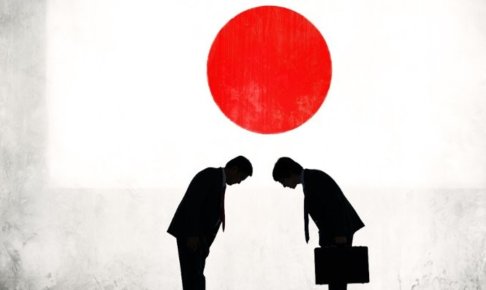Before setting a branch in Japan, you should be aware of the business culture there. Japanese people are notoriously hardworking. This is one of the many explanations why they have such high economic growth and are more advanced than other countries. However, the work culture of a Japanese white-collared worker is known for their long work hours, and there have been cases of employees literally being worked to death (called karōshi). Still, stories like this should not scare you away from pursuing a career in Japan. There are many opportunities for foreigners there and the Japanese government is making an effort to decrease its ridiculous long work hours.
Table of Contents
Cons
Long Hours

As mentioned before, Japanese whitecollared workers are known to be overworked. The workaholic attitude they have is partly due to the fact that they want to save face. If they were the first one to leave on a workday, it might be perceived as if they were looking forward to leaving early and not putting in any effort into their work.
Although Japanese companies really value punctuality, you are expected to arrive earlier than your start time and leave later than your end time to show commitment. According to a 2016 government survey, 1/4 of Japanese companies require their employees to work over 80 hours of overtime per month. It places them in a dangerous situation of risking their own life. Not only does it take a toll on one’s physical health, but your mental stability as well.
Language Barrier
 Another inevitable con is the language barrier. If you are a foreigner trying to learn the Japanese language, it might be difficult for you to practice it because your colleagues might automatically speak English with you in fear you might not understand. Because of this, you might not get many chances to use your Japanese, making it harder for you to become more proficient. If you are coming to Japan with little to no Japanese proficiency, it can be difficult even if you do land a job. For example, if you have a marketing position, you are expected to write social media posts in Japanese. If you don’t know any, it can make your job a lot harder than it should be (and you cannot rely on Google translate of course). Your colleagues will also feel more trusting and at ease if you communicate with them in their native language.
Another inevitable con is the language barrier. If you are a foreigner trying to learn the Japanese language, it might be difficult for you to practice it because your colleagues might automatically speak English with you in fear you might not understand. Because of this, you might not get many chances to use your Japanese, making it harder for you to become more proficient. If you are coming to Japan with little to no Japanese proficiency, it can be difficult even if you do land a job. For example, if you have a marketing position, you are expected to write social media posts in Japanese. If you don’t know any, it can make your job a lot harder than it should be (and you cannot rely on Google translate of course). Your colleagues will also feel more trusting and at ease if you communicate with them in their native language.
Drinking Culture

Known as nomikai, drinking parties are frequent in Japan, especially after work (enkai, ‘work parties’). It is an occasion to show that you are part of a company as a team member in a warmer atmosphere. It is considered as working time, with Japanese values showing through. This can lead to strong work relationships if you enjoy socializing with your colleagues. The word ’nommunication’ (nomu, ‘drink’, and ‘communication’) has even been created to talk about this practice.
However, sometimes, after-work drinking is obligatory. When the boss invites everyone out on a Friday night, it is hard to refuse his offer because you might be seen as inconsiderate. If you do not show up, it would be more difficult to create bonds with your teammates or to be (fully) integrated. It is also easy to drink more than you initially wanted to, because the others fill your glass as soon as it is empty or almost empty. There are also many rules you should pay attention to in order to not offend someone.
But if you leave a good impression to your boss or colleagues during the enkai, you will leave a good impression at work. And if you like drinking parties, it is more of an advantage than a disadvantage. You can also tell your teammates that you do not drink or that you have a low alcohol tolerance if you do not want to drink (too much). And remember that everything that has been said or done is usually forgotten the day after as a general and unwritten rule.
Retirement
Japan has the highest average retirement age among developed countries, with 69.5 years old for males and 66.5 years old for females (according to the Organization for Economic Co-operation and Development, in 2008).
It is, however, common to see people working at a more advanced age, in convenient stores or in small restaurants, for example. Indeed, the average pension is about 1,350 USD and many people must work due to the high cost of living. Besides, pensioners often want to contribute to the society and to feel useful, not dependent (which agrees with the concept of overtime as a way to show we are helping the company and not being selfish). Plus, Japan needs more workforce, its population being among the oldest in the world. It was thus decided to raise the retirement age to ‘cope with a decline in the workforce.’ (Nippon Steel Corporation)
Huge Gender Gap

As in many countries, unfortunately, wage differences exist between men and women, and some jobs are seen as men job (manager, worker in a construction industry) or women job (beautician, office worker). Still, Japan has a very large gap compared to other places, around of 24.5 percent in 2018, and is ranked 114 out of 146 in 2017 (even lower than in the 2016 and 2015 rankings).
Even if the minds are changing with globalization, many people still believe that the place of a woman is at home when she has children. According to Mariko Fujita, only 27.6 percent of graduate university students think that mothers should continue working. In textbooks, women are portrayed as housewives or as workers who keep thinking about their children. The motto ‘good wife, wise mother’ (ryо̄sai kenbo) is also well established in people’s mind.
Communication Style
Japanese communication style differs quite a lot from European or American styles. The Japanese language has many variations; ‘to eat’ can translate as taberu (neutral), tabemasu (polite), meshiagarimasu (very polite and respectful) or itadakimasu (very polite and humble) for example. Besides the language itself, the way of communicating is more indirect, more subtle than in the West. It can be rude to say directly what we want. For example, if someone wants a friend (not especially close to him) to pick him up at the station, he would say that he will arrive at the station at a specific time, or that he will have to walk a long time until his house. A Westerner will usually ask directly, ‘Could you pick me up at the station?’ It is the same with nonverbal communication. And if you are more outgoing, remember that in Japan it is unusual to talk to strangers.
Although these are just a few cons mentioned, no barrier can’t be overcome without a little effort and hard work. Your colleagues will also feel more trusting and at ease if you communicate with them in their native language. The opportunity to live and experience the culture in Japan is definitely unforgettable!
Pros
Now onto the pros! Despite all the negatives, all the positives outweigh the cons of working in Japan. There are so many benefits of working in one of the most developed technologically advanced countries in the world. Getting out of your comfort zone can help you excel in your personal development and gain lifelong memories of a unique experience.
Teamwork

You might have already heard before, but Japanese work culture revolves a lot around teamwork. The reason for this is because companies want to produce the best results possible, even if making a decision takes a long time. According to Maslow’s hierarchy of needs, the third level of need is labeled as “love and/or belonging.” Companies want to gather everyone’s inputs and opinions so that everyone has a say in it, creating a sense of belonging for employees. Healthy interpersonal relationships motivate good behaviors, which can result in quality decision-making.
It gives you many opportunities to communicate with your coworkers to get things done. As a result, you receive good feedback and get to work in a healthy supportive environment. Group-oriented activities can allow you to be more involved in sharing responsibilities and taking initiative into suggesting what is best for the company.
More Foreigners Coming Into Japan
 The majority of Japan is still very ethically monolithic compared to the U.S., which is more culturally diverse. Japan has been known to be an isolated country, but it is slowly changing. According to the Mizuho Economic Outlook and Analysis, there are 2.5 million foreign workers living in Japan as of 2018. With an aging population and the 2020 Olympics quickly approaching, the country is frantically trying to fill in the extra jobs because of the labor shortage. The amount of Gaijin’s (外人; ‘foreigners’ / ‘non-Japanese’) is hitting a new record high since 2008.
The majority of Japan is still very ethically monolithic compared to the U.S., which is more culturally diverse. Japan has been known to be an isolated country, but it is slowly changing. According to the Mizuho Economic Outlook and Analysis, there are 2.5 million foreign workers living in Japan as of 2018. With an aging population and the 2020 Olympics quickly approaching, the country is frantically trying to fill in the extra jobs because of the labor shortage. The amount of Gaijin’s (外人; ‘foreigners’ / ‘non-Japanese’) is hitting a new record high since 2008.
So what does this mean for Japan? Japan is opening up its borders to more and more foreign workers in recent years and making an effort to integrate about 500,000 people by 2025 (about 70,000/year). This gives many opportunities for people who wished to work in Japan to be able to come in a little easier. Japan’s acceptance of more foreign workers will not only help ease their population decline, but it will lead towards a more open-minded Japan.
Living in a Big City

The advantages of living in big cities usually are that the salary is pretty high or that you can find everything you need. Concerning Japan, the average salary in Tokyo is around 3000 USD per month (2020), among the highest in the world (with Paris, London or Hong Kong). The economy in the capital is also diversified and has a strong presence in almost every sector. Because Japan needs workforce, they try to attract foreigners, so you will not lack of job opportunities (especially if you can speak Japanese fluently). Also, employers are not afraid of training new workers – on the contrary.
In addition to that, the Japanese transport system is more than efficient, with many lines and an organized system. The trains are fast and secured – but crowded during rush hours. Many companies also pay for the transport (from a station A to a station B).
Living in Japan, Basically

Living in Japan, it is living in a safe country with a low crime rate and where rules are strict and strictly followed. Children are often seen walking alone on their way home, lost objects are not taken but hanged on a tree or put on a bench for their owners to find them…
Still, even if Japanese people do not want to do something ‘bad’, they do not always try to do what is ‘good’. Do not listen to the stereotypes but make your own opinion and experience life in Japan.
If you’re a tech company that has high hopes of entering the Japanese market successfully, you can look forward to seeing your business booming with high profits. You don’t have to feel apprehensive about stepping into unfamiliar territory, and you are certainly not alone. We can help your company successfully launch into the Japanese market. Contact us today at info@gloture.co.jp to expand your presence in Japan!
Reference https://blog.gaijinpot.com/12-things-love-living-japan/ https://www.japantimes.co.jp/community/2019/01/30/how-tos/thinking-working-japan-good-know-youre/ https://www.reuters.com/article/us-japan-economy-retirement/retiring-late-as-pensions-underwhelm-more-japanese-opt-to-prolong-employment-idUSKCN1RM0GP https://www.ncbi.nlm.nih.gov/books/NBK109234/ https://www.investopedia.com/articles/personal-finance/052815/guide-retiring-japan-foreigner.asp https://blog.gaijinpot.com/surviving-the-enkai-how-to-prepare-for-japanese-drinking-culture-at-work/ https://www.dw.com/en/is-japans-after-work-drinking-culture-a-thing-of-the-past/a-50720989 https://www.imf.org/external/pubs/ft/fandd/2019/03/gender-equality-in-japan-yamaguchi.htm https://owlcation.com/social-sciences/Cultural-Differences-Between-the-US-and-Japan https://checkinprice.com/average-and-minimum-salary-in-tokyo-japan/ Mariko, F. (1989). "It's All Mother's Fault": Childcare and the Socialization of Working Mothers in Japan. Journal Of Japanese Studies, 15(1), 67. doi: 10.2307/132408 https://www.tofugu.com/japan/safety-in-japan/

















